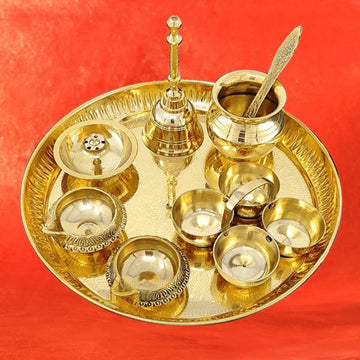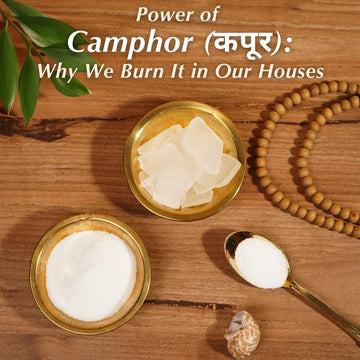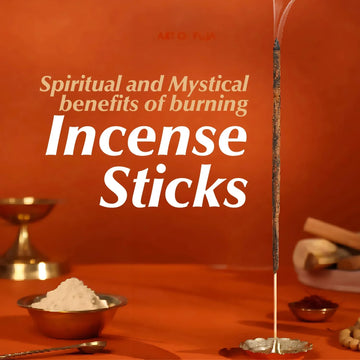Pooja items hold a special place in every household that practices daily rituals and prayers. These items are not only spiritually significant but also often hold sentimental value, passed down through generations. To ensure that your pooja items remain in pristine condition and serve you for years to come, it’s essential to maintain and clean them properly. In this guide, we’ll walk you through the steps to keep your pooja items looking their best and extend their longevity.
- Regular Cleaning Routine
Brass and Copper Items
Brass and copper are popular materials for pooja items due to their auspicious significance. However, they can tarnish over time. Here's how to clean them:
- Lemon and Salt Method: Cut a lemon in half and dip it in salt. Rub it over the brass or copper item to remove tarnish. Rinse with warm water and dry thoroughly.
- Baking Soda Paste: Make a paste of baking soda and water. Apply it to the item, scrub gently, and rinse off with water.
- Commercial Polish: Use brass or copper polish available in the market. Follow the instructions on the label for the best results.
Silver Items
Silver pooja items can develop a blackish layer over time due to oxidation. To clean them:
- Aluminum Foil and Baking Soda: Line a bowl with aluminum foil, add hot water, a tablespoon of baking soda, and a tablespoon of salt. Place the silver items in the solution for a few minutes, then rinse and dry.
- Toothpaste: Apply a non-gel toothpaste to the silver item and rub gently with a soft cloth. Rinse thoroughly and dry.
Wooden Items
Wooden pooja items need gentle care to maintain their beauty:
- Mild Soap Solution: Wipe wooden items with a soft cloth dipped in a mild soap solution. Avoid soaking them in water.
- Coconut Oil: Apply a small amount of coconut oil to a cloth and rub it onto the wooden surface to keep it moisturized and shiny.
Cloth Items
Items like altar cloths and prayer mats can gather dust and stains:
- Regular Washing: Wash these items regularly with mild detergent. For delicate fabrics, hand wash and air dry.
- Sunlight: Occasionally expose these items to sunlight to remove any dampness and prevent mold growth.
- Deep Cleaning for Festive Occasions
Before major festivals or special pooja ceremonies, a deep cleaning session can refresh all your pooja items:
- Metal Items: Soak brass and copper items in a solution of vinegar and salt for a few hours before scrubbing. For silver, use a silver cleaning solution for a thorough cleanse.
- Idols and Statues: Use a soft brush to remove dust from intricate designs. For metal idols, follow the regular cleaning methods. For stone or clay idols, use a damp cloth.
- Utensils: Clean pooja utensils like diyas, bells, and plates with warm soapy water. Ensure they are thoroughly dried to prevent water spots.
- Storage Tips
Proper storage is crucial to maintaining the condition of your pooja items:
- Dry Environment: Store metal items in a dry place to prevent corrosion. Use silica gel packets to absorb moisture.
- Soft Cloth Wrapping: Wrap delicate items in soft cloth to prevent scratches and tarnish.
- Organized Spaces: Keep pooja items in an organized manner, ensuring they are easily accessible and protected from damage.
- Regular Maintenance
Regular maintenance helps in prolonging the life of your pooja items:
- Weekly Dusting: Dust your pooja space and items weekly to keep them clean.
- Monthly Polishing: Polish metal items monthly to maintain their shine.
- Annual Check-up: Once a year, inspect all items for any damage or wear and tear. Repair or replace items as necessary.
Maintaining and cleaning your pooja items not only preserves their beauty and functionality but also respects the sanctity of the rituals they are part of. By following these simple steps, you can ensure that your pooja items remain a cherished part of your spiritual practice for years to come. Regular care and attention will keep them in excellent condition, ready to serve you and your family through countless ceremonies and celebrations.













